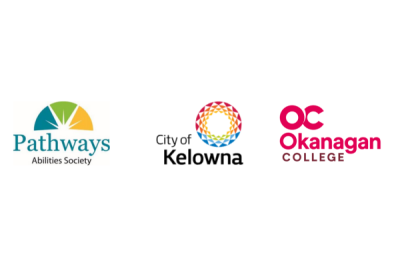College to launch Indigenous-knowledge infused professional cook training
Okanagan College Media Release
Okanagan College is turning to Indigenous knowledge keepers, chefs and foragers to help incorporate traditional knowledge and practices into an intake of its professional cook training program this spring – and any interested future chefs can step into the College’s kitchen this week to learn more and have their questions answered.
The Culinary and Pastry Arts department will host an info session about the pilot program on Thursday, Feb. 21 at 5 p.m. in Infusions Restaurant. Advance registration is not necessary.
Attendees will have a chance to hear from OC’s Culinary Manager Chef Vincent Stufano and staff from the College’s Aboriginal Services department about what they can expect in the program.
“We’re taking the industry-proven professional cook training that we are known for at OC and building on it in a way we feel will be very meaningful and valuable for students, both Indigenous and non-Indigenous,” notes Stufano. “Our chef instructors are excited and proud to be working with some chefs and knowledge keepers to infuse Indigenous culinary techniques and ingredients into the curriculum in this way. We think it’s going to make for a very rewarding experience for students.”
The program is 50 weeks in length and fires up on March 25. Students will train in the College’s teaching kitchens and labs at the Kelowna campus.
The pilot program – a first for OC’s Culinary Arts Certificate program – is a partnership between the College, the Industry Training Authority (ITA) BC and Okanagan Training and Development Council.
Andrew George, an Apprenticeship Advisor with the ITA and a Red Seal Chef, is one of those working with the College to create a rewarding training experience for students. George is a Hereditary Wing Chief for the Bear Clan in the traditional system of the Wet’suwet’en people. He is dedicated to helping Aboriginal youth access the tools they need to start successful culinary careers.
“Programs and collaborations like these are needed as they help bring Indigenous foods to the forefront. That in turn fosters understanding and respect, while showcasing the health benefits of Indigenous foods, and incorporating elements of history and important topics like food security,” says George.
“We’ve worked with bands across the region before to provide tailored culinary training to their members, but this is a little different,” notes Jonathan Rouse, the College’s Director of Food, Wine and Tourism. “This is an opportunity for Indigenous and non-Indigenous students to train together and engage with this unique program. The Okanagan is home to some truly remarkable Indigenous chefs, winemakers and other culinary artists, juxtaposed with a diversity of local ingredients, and so we hope to be able to continue to infuse more and more Indigenous perspectives into our food, wine and tourism training at the College.”
“The addition of Indigenous content into this program builds on one of the College’s Key Directions, which is working with and learning from the Indigenous Community,” explains Anthony Isaac, Aboriginal Services Manager for OC. “It’s also part of an even bigger, ongoing conversation and effort as the College continues to make strides to toward Indigenization. It’s about looking at how Indigenous knowledge can be interwoven into every aspect of what we do and how we serve students.”
As Stufano points out, Culinary Arts is a natural place for the intersection of knowledge and perspectives.
“Cooking is all about sharing ways of knowing and ways of doing. Every time you add another technique, another piece of knowledge, you’re contributing to your development as a Chef, which in turn hopefully you will pass on to others around you.
“In this instance, it is vitally important to us that we’re working with Indigenous experts to share traditional knowledge in a way that’s appropriate and authentic for all involved – from foraging an ingredient respectfully to the cooking and serving of it.”
“For both Indigenous and non-Indigenous students alike, this is a great chance to hone their technical skills and expand their knowledge-base as they engage with Indigenous knowledge and techniques in the classroom. It’s going to be an opportunity for dialogue and cultural exchange on multiple levels,” says Isaac.
More information about the College’s Culinary and Pastry Arts programs are available at okanagan.bc.ca/fwt.
Tags: Truth and Reconciliation



